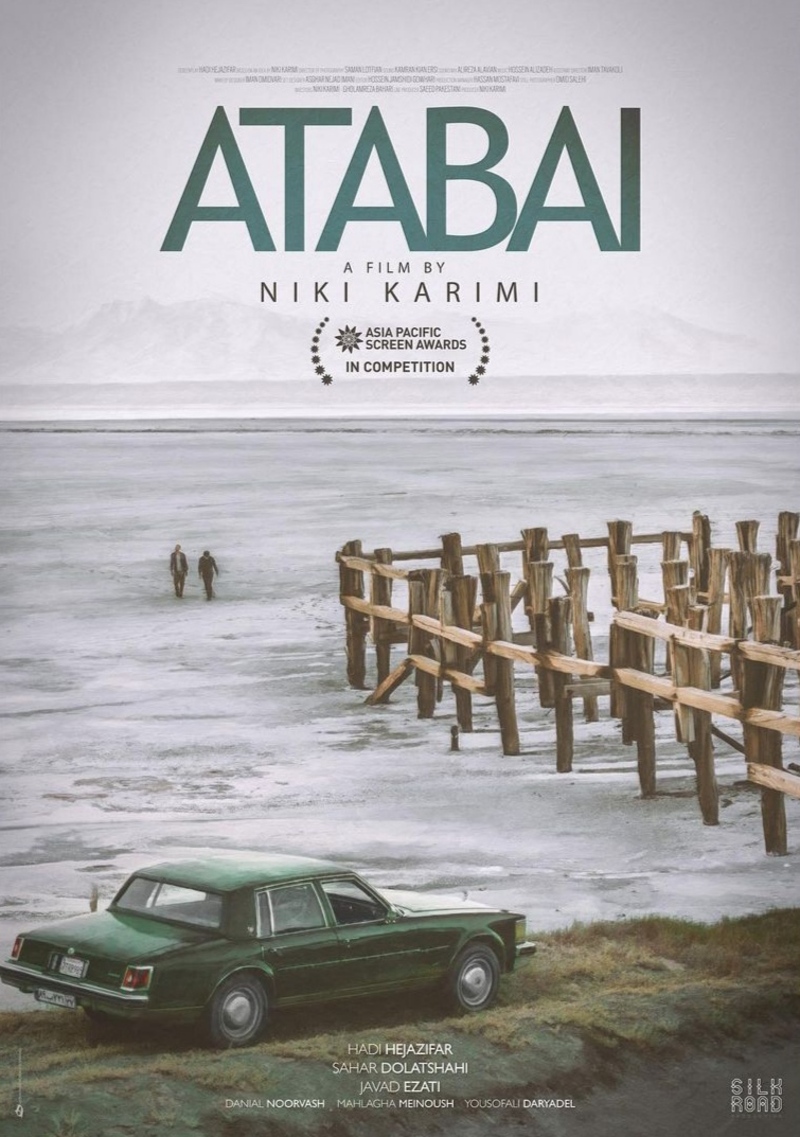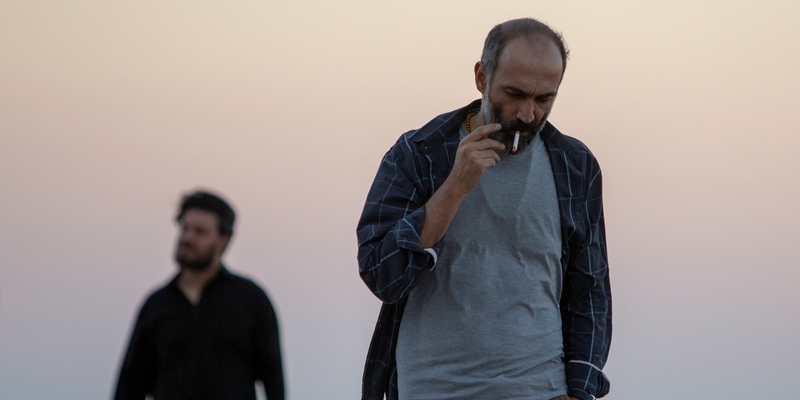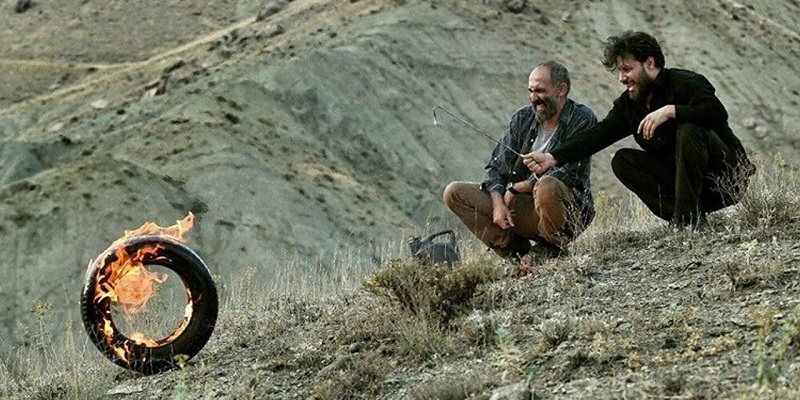
Review by
Benjamin Poole
Directed by: Niki Karimi
Starring: Hadi Hejazifar, Sahar Dolatshahi, Javad Ezati, Danial Noroush

One of the most pernicious lies that our society and culture, which is in
complete thrall to youth, propagates is that love exists exclusively for
the young. Our images of romance trade upon vernal beauty as it
experiences the first flushes of intimacy, wherein naivety is idealised.
We make such a big deal of weddings (boring, endless), but shouldn’t our
congratulations be saved for the decades down the line marriages which
have survived, for the participants who have grown together and born the
inevitable anguish and injuries that love, actual love, necessitates? Or
maybe, hahaha, isn’t it hilariously disgusting when those old people in Ti
West’s (boring, endless)
X
have a shag? When Cupid’s arrow hits the target it leaves a hole pierced
right through your heart: it is there forever, and the wound can only be
soothed by the very source of the pain. I dread to imagine the heartache
of love long unreciprocated, and the concept of an old age without such
affection is similarly inconceivable. Still, as a character in
Atabai suggests, "sadness is good for poets..."

Niki Karimi and Hadi Hejazifar’s (the former directs and the
latter stars with both contributing to the script)
Atabai opens with lead character Kazem (Hejazifar)
recounting the decades past, and looking toward those which are to soon
speedily pass. Middle aged Kazem is a man characterised by his heartache.
He has suffered romantic loss at the university where he teaches, and his
sister has killed herself in the orchard which belonged to his family.
This causes Kazem to return to the village, where old wounds are reopened,
and fresh cuts are threatened. Opposing the selling of the orchard by his
brother in law, Kazem finds himself falling for a woman from the village,
a relationship which is complicated by both the staggered ages of the
suitors along with their different statuses in life.

The visual dynamic of Atabai is highly striking. Filmed in
Northwest Iran, the intimacy of the human drama is played out against epic
panoramas of imposing mountains, infinite scrub and lakes that shine as
hard and blue as steel, giving the interactions an almost mythical
significance. Karimi weaves in rich tradition within deep focus
backgrounds where there is always something unusual occurring to catch the
eye: young men play a skipping game with a bullwhip, and Kazem and a
fellow villager ritualistically burn a tyre before setting it to run down
a mountain. Is there an implication that cultural systems have led to
repressions and behaviours which Kazem, in his autumnal years, seems to
have outgrown? Hejazifar’s powerful central performance is kinetically
physical, giving in to rage and passions that would have seemed to have
simmered away for decades...

A recurring motif of Atabai is the superstition that if you
see a dead person in your dreams, and reach to touch their finger, then
they will tell you important secrets. In a film where communication is
paramount, and much is made of the interface of different languages, this
is neat metaphor for reliance on solipsistic tradition over actual human
collaboration. Only when Kazem is honest and open with those around him,
and, more crucially, himself, can he move on and accept both the joy and
pain of love.

Atabai is in UK cinemas from May
6th.

